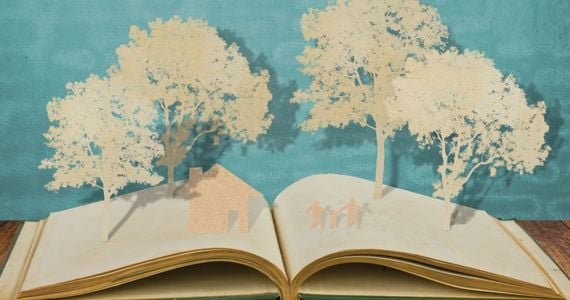Unlocking Our Past
It’s widely believed that exploring family history is one of the most popular hobbies, second only to gardening. While robust evidence for this claim is lacking, a survey conducted by Ancestry.ca revealed interesting insights about Canadians aged 18 and older:
- 91 percent consider knowing their family history important.
- 44 percent have looked into their ancestry.
- 44 percent are unaware of when their family first arrived in Canada.
- 42 percent wish to know more about their family background.
- 37 percent do not know where their grandparents or great-grandparents were born.
- 34 percent are unaware of either of their grandmothers’ maiden names.
Fortunately, those interested in tracing their lineage have numerous resources at their disposal. Whether it’s creating family trees using traditional methods with paper and pencil, utilizing free software, or constructing a tree online with accessible tools, the options are plentiful.
Emotional Health
Genealogical research conducted by Calgary-based experts indicates potential health advantages linked to exploring one’s family history. This pastime is not only a compelling problem-solving activity but also fosters a sense of achievement and autonomy. Discovering the challenges faced by our ancestors can enhance feelings of family pride and connection.
Moreover, gaining insight into our family histories can instill a sense of gratitude towards our own lives. This sense of groundedness often translates into a more positive outlook on our current circumstances and the futures of our loved ones. Recognizing the grounding effects of family history, some therapists suggest it as a therapeutic tool to improve clients’ emotional well-being. In some cases, professionals recommend constructing family trees to help individuals understand their backgrounds better and address personal conflicts.
A recent study highlighted another intriguing benefit: reflecting on one’s ancestry may improve cognitive function. Participants were split into two groups, one contemplating their family heritage and the other not. Those who engaged in ancestry reflection performed better on intelligence tasks.
Physical Health
Awareness of family medical history can contribute to better health outcomes; knowing inherited causes of death among ancestors could help identify certain prevalent health issues. For instance, a history of specific cancers can signify familial risk factors.
If multiple family members had succumbed to a particular form of cancer, appropriate screenings may be available to ascertain genetic predispositions. Discussing these options with a healthcare provider can lead to informed decisions.
Dealing with Surprises: My Personal Story
Digging into family histories often uncovers unexpected truths. When I explored my lineage, I was taken aback to learn that my great-great-grandfather passed away in jail—a stark contrast to my grandmother’s story of his death aboard a ship during his immigration from England in 1870. This revelation led me to suspect that my family might have been downplaying a “black sheep” in our lineage.
As I delved deeper through 19th-century newspapers and other resources, I gained a newfound appreciation for the hardships faced during my ancestor’s era. He contended with economic depression while attempting to forge a new life in Canada, and the jail where he died in 1894 acted as a sort of poorhouse for the local impoverished population.
Ultimately, I reflected that this facility provided him with the best conditions he’d experienced at that late stage of his life. Instead of viewing him as a pariah, I realized that the socio-economic context played a significant role in his story. Understanding his trials alleviated my initial embarrassment regarding his death in jail.
Taking the Plunge: Discover Your Own Story
Many individuals from the baby boomer and senior demographics feel an instinctive drive to uncover their ancestral roots. They often possess the time and resources to explore their heritage in person through heritage tourism. For pointers on beginning your own genealogical journey, refer to the accompanying sidebar.
My own exploration revealed how fortunate I am: unlike my great-great-uncles, grandfather, and father who faced the perils of battle, I spent my youth immersed in education and reflecting on historical conflicts rather than participating in them. Unearthing my ancestry has deepened my gratitude for my forebears’ bravery and fostered compassion for their flaws. What insights might your exploration yield?
Genealogy or Family History?
The fact that my great-great-grandfather died in 1894 is a genealogical fact—genealogy concerns itself with concrete details such as birth, marriage, and death. While genealogical information can provide a clear picture, it is not immune to inaccuracies; records may be falsified. Genealogical data often raises deeper questions about our ancestors’ experiences and reasons for immigration.
Answers to these inquiries fall under the umbrella of family history. Family historians seek insights from a variety of sources including social and economic history literature, photographs, letters, military records, newspapers, diaries, and passenger manifests. The records amassed typically tell a compelling but incomplete narrative. The facts collected are woven together with conjecture, imagination, and emotion to craft plausible family stories.
Tips for Success
There are various approaches to researching family history. Here are several suggestions to help you begin and refine your personal journey:
- Connect with others who share an interest in genealogy and learn from their experiences.
- Attend meetings of genealogy and family history groups to gather insights on diverse research methodologies.
- Treat your research as a puzzle, beginning with what you already know and moving toward uncharted territory. Start with oral or written family stories.
- Approach all information with a critical eye; many records may contain errors or may have been intentionally altered. Always seek corroborating evidence from multiple sources.
- Keep meticulous records of your research efforts and the documents you consult.
- Explore various free resources including websites, software, newsletters, videos, blogs, databases, historical documents, and books. Community museums and archives can also be valuable.
- Visit the Library and Archives Canada website for guidance on starting genealogical research: collectionscanada.gc.ca/genealogy.






